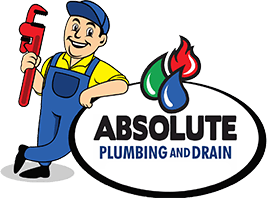DIY Plumbing Dos and Don'ts: Tips for Homeowners
.png)

When it comes to homeownership, the ability to handle basic plumbing tasks can be a valuable skill. However, DIY plumbing can quickly turn into a disaster if not approached with caution and knowledge. In this blog, we'll explore the essential dos and don'ts of DIY plumbing to help homeowners navigate common issues without causing more harm than good.
1. Do: Know Your Limits
Understanding the extent of your plumbing knowledge is crucial. While minor issues like a dripping faucet or a clogged drain can often be handled by homeowners, more complex problems may require professional intervention. Knowing when to call in a plumber can save you time, money, and prevent further damage.
2. Don't: Ignore Small Leaks
Even a small leak can lead to significant water damage over time. Addressing leaks promptly can prevent mold growth, structural damage, and higher water bills. If you're unsure about fixing a leak, consult a professional plumber to prevent the issue from escalating.
3. Do: Invest in Quality Tools
Having the right tools can make a significant difference in the success of your DIY plumbing projects. Invest in a good pipe wrench, plunger, plumber's tape, and a reliable pipe cutter. Quality tools ensure a safer and more effective approach to tackling plumbing tasks.
4. Don't: Use Chemical Drain Cleaners Excessively
Chemical drain cleaners may provide a quick fix for clogs, but frequent use can damage your pipes over time. Opt for natural alternatives like a mixture of baking soda and vinegar for occasional maintenance. For persistent clogs, it's best to consult a professional plumber.
5. Do: Turn Off the Water Supply
Before attempting any DIY plumbing repair, always turn off the water supply to the affected area. This simple step can prevent flooding and water damage, making your repair work more manageable.
6. Don't: Overtighten Plumbing Fixtures
Over-tightening pipes and fixtures can lead to cracks and leaks. Use the appropriate amount of force, and if you're unsure, consult a professional plumber to avoid causing damage to your plumbing system.
7. Do: Insulate Pipes in Cold Weather
During colder months, insulating your pipes can prevent them from freezing and bursting. A burst pipe can lead to extensive water damage and costly repairs. Insulation is a simple and effective way to protect your plumbing during winter.
8. Don't: Ignore Unusual Noises
Unusual noises, such as banging or rattling, may indicate a problem within your plumbing system. Ignoring these sounds can lead to more significant issues. Investigate and address unusual noises promptly to prevent potential damage.
Absolute Plumbing and Drain
While tackling minor plumbing issues can be a rewarding aspect of homeownership, it's crucial to approach DIY plumbing with caution. Knowing when to seek professional help is just as important as having the right tools. For complex issues or if you're unsure, don't hesitate to contact the experts.
If you're facing a plumbing challenge beyond your DIY capabilities, Absolute Plumbing And Drain is here to help. Our experienced team of plumbers is ready to provide efficient and reliable plumbing solutions. Contact us today for expert assistance in keeping your home's plumbing in top-notch condition.
